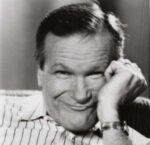







I woke up this morning with an epiphany: “The math is wrong; Radio chose the wrong equation.”
Recently, my brother Reg and I were discussing where and when the radio industry went south.
My claim is that it happened long before consolidation.
A while back, radio was so powerful that 98% of the population listened, and even though more than 5% of Americans are deaf, some of them were listening.
Back in those days, the radio station with the largest cume was #1, which, of course, made them the top biller.
So what went wrong, you may ask? Well, I think the radio’s demise probably can be traced back to a salesperson.
One of them most likely had a client who asked, “Hey, how many people actually heard my commercial today”?
That’s the moment, I believe, when radio began its downward slide.
Instead of saying, “I don’t know but, probably everybody,” the salesperson said, “I don’t know but, I’ll find out and get back to you.”
What radio did then was mind-boggling! We shrunk this big, beautiful number to a few little digits, called average quarter-hour.
Then, if that wasn’t enough, we shrunk it down to a single-digit rating point. What were we thinking?
Before then, Cume was King, and only a few people knew how to grow it,
Geniuses like Bill Drake, Jim Hilliard, Buzz Bennett Lee Abrams, Jack McCoy, Ron Chapman, and Randy Michaels ruled the airwaves.
But unfortunately, even though most broadcasters were putting 45% to the bottom line, the end was in sight.
(Pictured above, top left, Randy Michaels, Lee Abrams, Jack McCoy. and Jim Hilliard. Bottom left, Buzz Bennett. Chuck Blore, Bill Drake, and Ron Chapman.)
However, I believe what did us in was when a fucking accountant named Sam Zell whispered into Randy Michaels’ ear, “Stop chasing ratings; there ain’t no cheese in that tunnel.”
Shortly thereafter, Randy, who used to be a great product guy, fired the highest-rated morning show in San Diego.
What? C’mon, Man! That makes no sense; you don’t kick Mick out of the Stones, replace Tom Cruise in Top Gun with someone cheaper, or fire the lead in a hit Broadway Musical.
This, in my mind, was the beginning of the end.
Sam may have been right because when Randy fired Jeff and Jer, the radio station’s value increased by 20 million dollars.
However, that same radio station ain’t worth didley squat today.
I don’t know why, but for some reason, radio people think they know how to do everything, like Jeff Smulyn thinking he knew how to run a baseball team.
So even though only a handful of people on our planet have any idea how to make a stock rise, radio went Wall Street anyway. What a fucking disaster!
In the beginning, it all went well because as long as you were buying more radio stations, your stock kept rising.
However, the banks were anxious to hear what your plan was once you reached your ownership limit.
The Broadcasters, of course, didn’t have a plan, so the stock plummeted.
Now, facing huge debt and needing to make interest payments, the best our Radio Czars could come up with was, “Cut it to the bone.”
Unfortunately, that cut-it-to-the-bone attitude prevails today, and except for keeping the senior executives employed, it ain’t working.
So ponder this: what if the value of a radio station was based on a multiple of its gross instead of its net like the rest of the entertainment industry? What do you think radio would be like today?
Even though I’ve never been a big fan of sales folks, I feel sorry for what they must be going through now.
It’s gotta be tough out there trying to sell radio in a digital world.
I think the only way radio can get back in the game is by putting compelling product on the air.
That product not only needs to be local, but it also needs to inspire those it attracts to buy some shit.
As my 10th-grade British History teacher, Mr. Foreman used to say, “Class, the roots of the present lie deep in the past.”
He’s right because some of the stuff I learned back in the day is still relevant.
As my old pal Socrates said, “It’s what’s above the bottom line that causes the bottom line.”
Then, when Jim Hilliard added, “A person is always the answer,” it brought it all together for me.
The product causes an effect called ratings and revenue, and the person who creates that product will also need to figure out how to monetize it.
This programmer of the future should also know how to utilize AI so they can make the product better while cutting even more costs.
Oh, and those big promotions they’ll need to attract an audience must now also be revenue builders. Gotta make those interest payments, baby!
I have no idea who this person is or how long it will take to find them, so we may be wiser just to start over.

GEO’S LIFE-LINERS
Which would you prefer, hearing more applause or more constructive criticism? Don’t lie to me now.
A point of view is usually only an opinion and must be treated as such.
Music used to be an art form, but now it’s just a commodity.
When we launched our new format in Dallas, which had its beginnings in Toronto, we made a list of everything we shouldn’t do, leaving us plenty of room to do everything we should do.
Pretending to understand why a woman needs more than 50 pairs of shoes should result in the greatest night of your life.
The only way you get to see the future is by creating it.
Just because it ain’t against the law don’t make it right.
Only one band ever produced four superstars—the Beatles.
My quest has always been to live, not just survive.
One can only wonder what Juan Valdez, who worked for Boban Coffee, was thinking as he and his donkey slowly worked their way up the mountain, picking one bean at a time while watching the Cartel roar down the hill in their limos.
Sometimes, the most extraordinary things come out of chaos.
Besides the push from record companies and other unsavory characters, I can’t understand why the supergroups didn’t treat touring like a vacation.
You know, relax for a few days in places like Paris, Rome, New York, Miami and LA before playing the concert. If they did that, they’d probably be able to tour forever.
Radio Geo’s Media Blog is a politically incorrect inside look at Radio, TV, Music, Movies, Books, Social Media, Politics, Religion, and Life, primarily written with men in mind.
For a peek at upcoming Blogs or to see some you may have missed, go to GeorgeJohns.com. On Twitter @GeoOfTheRadio. Sharing and commenting is appreciated.
If you’d like to subscribe, email your address to radiogeo@gmail.com.



David Chesney: Having worked for the largest record company (CBS RECORDS) for over a decade during the time of radio’s flameout, to me the death was when music was available EVERYWHERE. Up to that point radio was KING, they had the tunes – PERIOD! Couple that with getting rid of all the personalities on the radio, add it up and you have, what we have now when we turn on the radio. (An Ephinay)
Geo: Yeah, radio got lazy when we had the music, David. Then, when Howard Stern, Rush Limbaugh, and a few others showed us that there was more to radio than music, we still didn’t learn.
John Keogh: Great read George. Radio never did adjust to new challenges, we all know that, but here are my 5 it should have met … and never did.
1) Solve the disconnect between advertiser and service provider (station).
2) Reduce commercial load while increasing revenue.
3) Eliminate tune out points to extend Time Spent Listening.
4) Respond to the ever-increasing need for better signal quality.
5) Revive its lost ability to create talk. (An Ephinay)
Geo: Well said, John, and also nice to hear from the folks in the Motherland.
Clark Smidt: “In my opinion, radio can only get back in the game by putting some compelling product on the air.
That product not only needs to be local, but it also needs to inspire those it attracts to buy some shit.”
It can happen again, even with AM on Digital FM. 1220watx.com (Epiphany)
Geo: Thanks for the read, Clark.
Ron Brandon: Agreed. The answers seem simple enough in retrospect. The solutions, not so much. I am a pessimist. Too many of the younger generations simply do not know what a radio is. I’m thinking it would take an enormous investment of cash to build a successful radio station today, and ROI would be very iffy. (Epiphany)
Geo: The only good news, Ron is, we can all afford to buy a radio station now, but do we want to?
W.T.:Great piece, George, but programming can share some of the blame. You and the eight people in those pictures knew that it was what went on between the records that really mattered. When radio more-music’d itself into just being a music service and factored out everything but records and spots, it left itself open to competition. With the coming of the iPod and car CD players, etc., it wasn’t Top 40 vs. MOR or AM vs. FM any longer. It became MY music vs. SOMEONE ELSE’S music. And to a lot of people, it was no contest.(Ephinay)
Geo: Yep, W.T. Even when Howard and Rush showed us another way, we still didn’t listen.